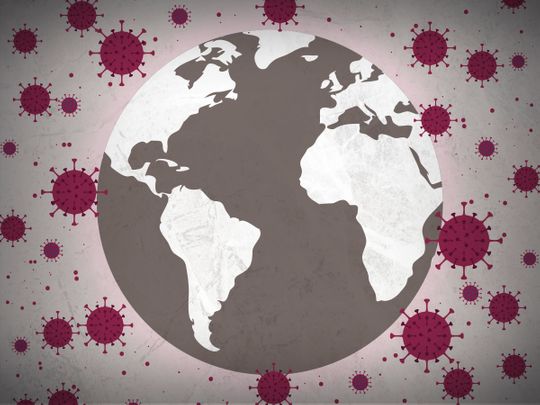
These are confusing times, seriously. I walked into one of those big hypermarkets a few days ago without a face mask. I forgot to grab one from the car. And I didn’t realise that I didn’t have one on until I was actually in the store. I was just going in for a small thing; I will be quick, I thought. I didn’t need to go back to the car and get a mask.
As I enter, I see the security guard inside. He looks at me and then looks around. He is visibly confused. Should he tell me to leave? Or perhaps it is OK now to go in without a mask. Is face mask wearing mandatory or voluntary?
I left the guard wondering and got the stuff and left. But as I drove away I felt as confused as the security guard. In fact, we are all confused about Covid-19 nowadays. Is it over? Can we all just forget about it and move on with our lives? Or is it still here, among us waiting for the right moment to strike?
I have noticed lately, in my gym, that I am the only one wearing a mask going into the lockers. The gym is in a hotel nearby. I have been noticing that few people wear a mask in the lobby too. Life apparently has moved on. Few people talk about it anymore.
There seems to be this tacit agreement among all of us to not talk about it — perhaps to keep it away. Life is getting back to normal apparently, why jinx it. Covid might come back if we start talking about it again. That is perhaps why some countries, like Singapore, plan to stop counting new Covid cases.
No definite answer
That is why we seem to be confused about what we do. Mask or not mask? Should we invite friends for iftar this Ramadan? Is the coronavirus pandemic over? There seems to be no definite answer. Only hints here and there that we should ‘act’ normal.
In Europe for example and despite the rising number of new infections, most governments have removed all health restrictions. No more free testing in the UK although the spread of the virus there has reached record levels, “with about 1 in 13 people estimated to be infected with the virus in the past week,” according to Associated Press quoting Britain’s official statistics agency.
The Office for National Statistics agency says approximately 5 million people were estimated to have the coronavirus in the week ending March 26, up from 4.3 million recorded in the previous week. The rise is due to the rapid spread of highly transmissible ‘BA. 2 sub-variant’ of Omicron.
Germany lifted most restrictions two weeks ago. The country has reported record infection numbers since then. More than 25 million residents of China’s main business hub Shanghai are in lockdown. All over East Asia, hundreds of thousands of new cases are reported daily.
Closer to home, my brother-in-law tested positive on Wednesday. He is isolated in his bedroom. My friend and his whole family, of five, tested positive last week. This is their second time in the past 12 months. But life seems to have returned to ‘normality’ all over the world despite the rising numbers. We can travel now without having to show a PCR result. Some countries don’t even require a vaccine.
WHO’s warning
Nevertheless, scientists are reluctant to say that the pandemic is over. The WHO meanwhile has warned of a new Omicron strain that appears to be more transmissible than previous strains of Covid-19. It is called XE, “a mutant hybrid of two sub-variants of Omicron — BA. 1 and BA. 2”, according to WHO experts.
But scientists in UK’s Imperial College of London warn of more contagious variants: Three mutant strains of coronavirus, XD, XE and XF, are wreaking havoc in Europe. The most dangerous of them is XD, according to the college’s virologist Tom Peacock.
Known as ‘Deltacron’ among scientists, XD’s core characteristics come from the more lethal variant, Delta, but its spike protein, which allows the virus to spread faster and infect easier, comes from the highly transmittable Omicron. That is perhaps the reason behind the sudden spike in hospitalisations and death rates in the UK.
This is exactly why most of us are confused. The pandemic clearly isn’t over. It alive and well. New variants may be more dangerous than ever. But the world has decided to live with Covid. Life should at some point return to normal.
Right? We cannot be held hostage by the virus forever, dealing a blow after a blow to the global economy and plunging millions of people more into poverty. So much is at stake. It is sort of a dilemma, true. But one that we can eventually manage to overcome.
So, let us be clear. Covid is not over, but most world governments will no longer impose restrictions. Thus, we just have to stick to our own personal measures.
Don’t forget your face mask when you go to the neighbourhood supermarket. Security guards need not be confused. They must tell customers to mask up. Let us avoid crowded spots as much as possible. It is as simple as that.
Despite the XD and whatever the coronavirus mutates into next week or next month, we will be fine. We will beat it. We all found out that we are far more resilient than we thought we were.








